Fellowships
Physician Fellowship
The Fellowship in Hospice and Palliative Medicine of Montefiore Medical Center/Albert Einstein College of Medicine at MJHS is ACGME-accredited and offers a unique training experience, including rotations with inpatient consultation services in both a hospital and nursing homes, community-based hospice, two ambulatory practices, and long-term care. The faculty, which includes physicians in multiple specialties (Internal Medicine, Family Medicine, and Pediatrics) and others in nursing, social work, chaplaincy, psychology, and research, trains three Fellows per year.
APPLICATION
Applications are now closed for the 2026-2027 academic year.
For future applicants, please submit a complete ERAS application, including a curriculum vitae, personal statement, three letters of support, and test scores using the online ERAS application system.
MJHS Hospice and Palliative Care
55 Water Street, 46th Floor
New York, NY 10041
Montefiore Medical Center/Albert Einstein College of Medicine sponsors two Fellowships in Hospice and Palliative Medicine. The MJHS Fellowship in Hospice and Palliative Medicine (ACGME #5403512112 Montefiore Medical Center/Albert Einstein College of Medicine at MJHS Hospice and Palliative Care Program) accepts 3 physicians per year.
The clinical ‘home’ for the MJHS Fellowship in Hospice and Palliative Medicine is MJHS Hospice and Palliative Care, a participating agency of MJHS—a large not-for-profit health system in New York. MJHS Hospice and Palliative Care serves all the boroughs of New York City (except Staten Island) and Nassau County. During Fellowship, trainees rotate in varied inpatient and community-based sites served by MJHS Hospice and Palliative Care and complete hospital-based rotations at Montefiore Medical Center.
The Program Director for the MJHS Fellowship in Hospice and Palliative Medicine is Kerrianne P. Page, MD, HMDC, and the Associate Program Directors are Michael Mencias, MD, FAAHPM, and Myra Glajchen, DSW. The faculty includes physicians in multiple specialties (Internal Medicine, Family Medicine, Neurology, and Pediatrics), as well as faculty in nursing, social work, chaplaincy, pharmacy, psychology, and research.
Completion of the year-long Montefiore Medical Center/Albert Einstein College of Medicine at MJHS Hospice and Palliative Care Program is intended to accomplish the following goals and objectives:
- Fellows will acquire competencies relevant to the subspecialty practice of Hospice and Palliative Medicine. These competencies encompass patient care, medical knowledge, practice-based learning, communication skills, professionalism, and systems-based practice. They will be demonstrated through expertise in the following practices:
- Communication, serious illness discussions, and advance care planning
- Management of physical aspects of care in populations with serious chronic illnesses, including management of pain, other symptoms, and disorders common in advanced illness
- Management of psychosocial and psychiatric aspects of care, including management of neuropsychiatric comorbidities, psychiatric comorbidity, and grief and bereavement
- Management of spiritual and existential aspects of care, including the assessment of spiritual distress
- Management of the patient and family through the period of active dying
- Ethical and legal practices during management of advanced illness
- Culturally competent care of populations with advanced illness
- Using hospice as a system to provide specialist palliative care
- Using quality improvement in populations with advanced illnesses
- Fellows will evaluate at minimum 300 new patients over 12 months
- Fellows will follow patients longitudinally and across settings
- Fellows will perform home visits
- Fellows will manage the care of patients in a long-term care facility
- Fellows will participate in a communication skills training
- Fellows will participate in weekly didactic lectures and interdisciplinary team meetings, and regularly scheduled journal clubs, clinical conferences, and self-reflection seminars
- Fellows will meet regularly with faculty, the Associate Program Director, and the Program Director to discuss their performance and self-care
Clinical Curriculum
The MJHS Fellowship in Hospice and Palliative Medicine offers a unique training experience across diverse practice sites. Rotations are scheduled in 4-week blocks; there are 13 blocks in the year (MJHS Block Schedule). Fellows take call throughout the year; most call is taken from home.
Inpatient Consultation Team: Four Blocks
Fellows spend four blocks on the inpatient consultation service at Montefiore Medical Center, one of the largest tertiary teaching hospitals in the country. The interdisciplinary palliative care team assesses and manages inpatients with complex medical and psychosocial problems. The patient population is very diverse in race, ethnicity, culture, and socioeconomic status.
Rotation Goals: Fellows will have progressive responsibility for the medical aspects of the palliative plan of care, gaining experience in the conduct of family meetings, End-of-Life decision-making, and hospice eligibility review. The on-site preceptor for this rotation will be Serife Eti, MD, and other attendings assigned to the Palliative Care consultation service.
Dedicated Inpatient Unit: One Block
Fellows spend one block in the dedicated inpatient unit at Montefiore Medical Center. The 10-bed inpatient hospice and palliative care unit, located at the Moses Division, offers a multidisciplinary team approach to patient care. The unit team includes an attending, physician assistants, nurses, and a social worker.
Rotation Goals: Fellows will manage complex medical and psychosocial problems associated with advanced illness and will improve skills in effective teamwork and communication. There will be progressive responsibility for unit admissions, initial assessments and plans of care, medical decision-making, order writing, medical documentation, and family meetings. During this rotation, the fellow will be precepted by Serife Eti, MD, and other attendings.
Home Hospice: Four Blocks
The home hospice care rotation involves placement on the Manhattan, Bronx, or Queens community-based teams of MJHS Hospice and Palliative Care. In these block rotations, the Fellow will function as a member of the hospice team and will perform home visits while participating in the oversight and management of the interdisciplinary plan of care. The populations served by these teams are extremely diverse in terms of demographics, culture, age, socioeconomic status, terminal illnesses, and treatment status, among other factors. Each fellow will have the opportunity to care for both adult and pediatric hospice patients in the community. Preceptors for these rotations will be Fiona Bayne, MD, Damani Taylor, MD, Michael Mencias, MD and David Adlerstein, MD.
Rotation Goals: This rotation will provide a robust opportunity to learn about hospice as a health care system, including eligibility requirements, admissions processes, treatments and services provided, documentation requirements, discharges, interdisciplinary team functioning, and regulatory aspects.
Facility-Based Palliative Care: Two Blocks
Each fellow will spend two blocks on the community-based palliative care consultation rotation, working both at The New Jewish Home and providing home based palliative care consultation. The New Jewish Home is a large long-term care facility located on the Upper West Side of Manhattan; it provides care to 13,000 sick and elderly patients a year through diverse programs and settings, including a long-term skilled nursing facility and a short-stay rehabilitation service.
The fellow will work as a member of the palliative care team to provide consultation to patients from a diverse spectrum of cultural, economic and social backgrounds under the supervision of an MJHS Director of Palliative Care Practice, providing residents with initial assessment, care plans and follow-up treatment. During this block the fellow will perform daily rounds, provide new consultations and follow-up visits to assess and treat pain and other symptoms, provide guidance in the management of psychosocial and family distress, assist with advance care planning, and recommend plans for care in the community after discharge. If the illness is advanced and the patient and family might benefit from comprehensive care by a hospice program, the fellow will participate in referral to hospice services, eligibility determination, and transition of care. Additionally, the fellows will work with members of the palliative care team to provide home-based palliative care consultation for patients with serious illnesses who are homebound. Consultation, follow-up visits, and family meetings will be performed both in-person and through the use of telemedicine in appropriate circumstances. During this rotation, the fellows will be supervised by Tartania Brown, MD.
The New Jewish Home is a large not-for-profit facility located on the Upper West Side of Manhattan; it provides care to 13,000 sick and elderly patients a year through diverse programs and settings, including a long-term skilled nursing facility and a short-stay rehabilitation facility.
Rotation Goals: Fellows develop skills in performing palliative care consultations in the nursing home setting, gaining expertise in symptom management and goal-setting discussions, care transitions, and the role of hospice.
Dedicated General Inpatient Hospice Service (PCAT): One Block
Every fellow will spend one block managing general inpatient care (GIP) hospice patients at New York Presbyterian Hospital. This rotation will provide fellows with experience in providing hospice care for patients experiencing intense pain or other uncontrolled symptoms that cannot be managed in the home or other less intensive settings. The fellow will gain experience in providing short-term, acute medical care to stabilize a patient’s condition and facilitate transition back to home based hospice care if possible, as well as develop their skills in managing symptomatic, imminently dying patients in the inpatient setting. During this rotation, the fellow will become a member of the interdisciplinary team, conduct daily rounds, admit and follow patients, participate in team meetings, document in the medical record and acquire progressive responsibility for the medical plan of care, goals of care discussions, discharge planning and follow-up care. Fellows will gain experience in communication with patients, families, and clinical colleagues, and will learn about other care settings and community resources. They will hone their documentation skills by writing progress notes in the electronic medical record that meet regulatory requirements to support level of care eligibility as outlined in the Hospice Conditions of Participation. The preceptor for this rotation will be David Adlerstein, MD.
Long-Term Care: One Block
Every fellow will spend one block at Isabella Geriatric Center precepted by the nursing home medical director. Isabella Geriatric Center for Rehabilitation and Nursing is a nonprofit, non-sectarian organization which provides a continuum of services focused on maintaining health and well-being for older adults through a 705-bed nursing home facility, senior housing, adult day care, short- and long-term rehabilitation and in the community at large. The fellow will gain experience in the management of geriatric syndromes, complex symptom management, and end of life care for older patients. The fellows will be trained in assessment of the non-verbal patient, wound care, and the management of complex issues related to nutrition and hydration, progressive neurodegenerative illness, and frailty. Fellows will learn about the role of palliative care in this environment, including exposure to such key events as the family meeting, goals of care discussions, advance directive completion, and care transitions. The supervisor for this rotation will be Mohammed Butt, MD, the medical director, who is board certified in Geriatrics and Internal Medicine.
Rotation Goals: Fellows gain experience in the management of geriatric syndromes, complex symptom management, wound care, and End-of-Life care for nursing home patients, and learn about the role of palliative care specialists in this environment. The on-site preceptor is Mohammed Butt, MD, and other attendings employed by the facility.
Elective: One Block
Every trainee will be permitted to take one block-long elective. During the elective, the trainee will be expected to function fully in all aspects of clinical work under an attending physician and faculty on the elective service. Possible electives include the following: Hospice Administration, Ethics, Pediatrics, Research, and Interventional Pain.
Ambulatory Care: Eight Months
Fellows will spend one day per week in the ambulatory practice setting for a total of 8 months over the course of the training year. The longitudinal ambulatory care experience runs concurrently with other block rotations, allowing fellows the opportunity to develop physician-patient relationships and experience the cadence of care delivered in the ambulatory setting. Each fellow will receive training in 2 distinct ambulatory practice models, each approximately 4 months in duration: 1) an embedded palliative care model in the Montefiore Einstein Center for Cancer Care under the direct supervision of Quinn Demarest, MD; and 2) an independent, general palliative care ambulatory practice at New York Presbyterian Hospital/Columbia University Medical Center under the direct supervision of Dinaz Irani, MD. In both sites, fellows will care for a cohort of ambulatory palliative care patients at various stages in the trajectory of their illnesses. To ensure continuity of care and engagement across medical settings, fellows will be informed if patients are admitted to the hospital through the electronic medical record, providing the opportunity to provide services across the health care continuum.
Rotation Goals: Fellows gain experience in ambulatory palliative care, with a focus on symptom management and goal setting and advance care planning conversations.
Educational Curriculum
Weekly Lectures
The two Fellowships in Hospice and Palliative Medicine sponsored by Montefiore Medical Center/Albert Einstein College of Medicine jointly present weekly lectures for the trainees. The following are representative topics:
- Definitions, Domains, and Models of Palliative Care Assessment & Consultation
- Communication in Palliative Care
- Prognostication in Terminal Illness
- Hospice Fundamentals I
- Hospice Fundamentals II: The Benefit, Billing, Face-to-Face Visits
- Opioids and Cancer Pain
- Cancer Pain Syndromes
- Pediatrics in Palliative Care
- Research in Palliative Care and Hospice
- Management of Ventilator Withdrawal
- Dyspnea: Assessment and Management
- Gastrointestinal Symptoms: Assessment and Management
- Serious Illness Discussions
- Advance Care Planning
- The Family Meeting
- Level of Care Decision-Making
- Advanced Dementia: Management Issues & Hospice Admission Criteria
- Palliative Care in Advanced Neurologic Illness
- Palliative Care in Congestive Heart Failure
- Palliative Care in Advanced Neurologic Illness
- Management of Congestive Heart Failure
- Palliative Care in Advanced Neurologic Illness
- Palliative Sedation
Interprofessional Didactics
Interprofessional didactics are presented monthly to fellows and trainees from other disciplines, including social work, nursing, and pharmacy. Topics include:
- Quality Management in Hospice and Palliative Care
- Managing Interdisciplinary Team Conflict
- Psychosocial and Psychiatric Comorbidities in Palliative Care
- Cultural Considerations in Palliative Care and Hospice
- Evidence-Based Medicine: Evaluating the Research Literature
- Ambiguous Loss and Complicated Bereavement
- Saying Goodbye to Patients and Writing Condolence Notes
- Care for Children with Advanced Neurological Conditions
- Establishing Your Professional Identity After Training: Rules, Tools, and Pearls
Other Educational Sessions
- All fellows undergo communication skills training through participation in an annual Vital Talk Communication Skills Training Course
- Fellows participate in weekly IDT meetings during most rotations, including home hospice, the facility-based palliative care consultation services, and the palliative care unit
- Each fellow presents one didactic presentation and one Journal Club per year
- Fellows attend a biweekly clinical case/M&M conference moderated by the Program Director
Optional Sessions
- Fellows are invited to attend organizational meetings, including the Hospice Ethics Committee meeting and the Hospice Quality and Performance Improvement Committee meeting
Scholarly Activities Curriculum
Fellows are required to participate in scholarly activities during the fellowship. These activities include: 1) a quality improvement focused study developed in collaboration with the program director and quality staff of MJHS Hospice and Palliative Care and 2) a didactic and 3) Journal Club.
Fellows are offered the opportunity to participate in ongoing research conducted by faculty of the MJHS Institute. The Institute, established in 2014, is an academic entity focused on professional training and clinical investigation. Fellows who engage meaningfully in this work are considered co-investigators and co-authors on publications.
Physician Faculty
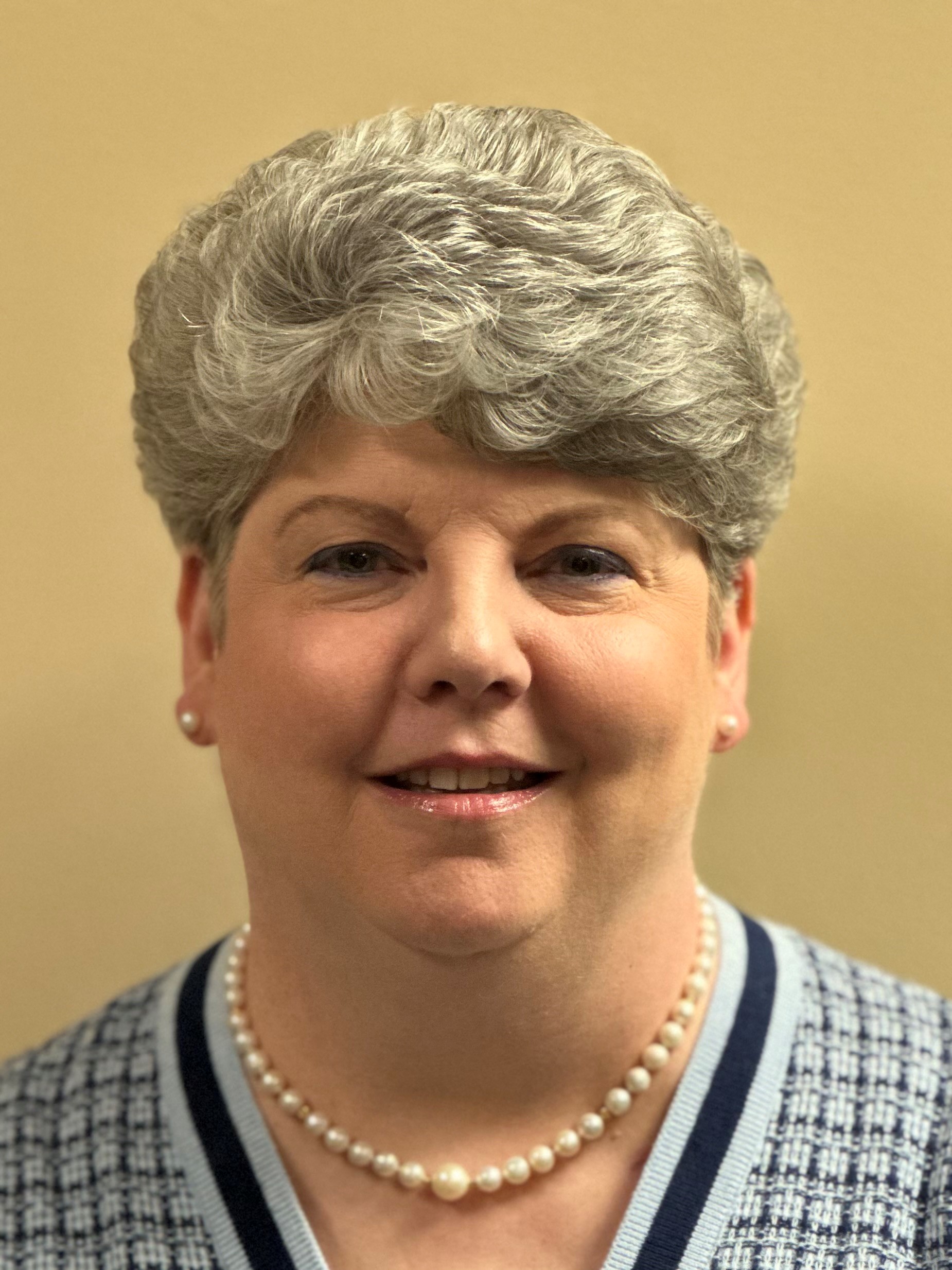
Kerrianne Page, MD
Chief Medical Officer
Fellowship Program Director
Hospice Medical Director
Internal Medicine
Hospice and Palliative Medicine
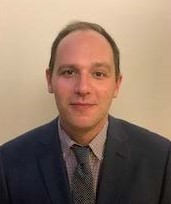
David Adlerstein, MD
Palliative Care Physician
Family Medicine
Hospice and Palliative Care

Tartania Brown, MD
Director of Palliative Care Provider Practice
Internal Medicine
Hospice and Palliative Medicine
Assistant Professor, Department of Family and Social Medicine, Albert Einstein College of Medicine
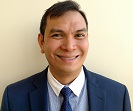
Michael Mencias, MD (Associate Program Director)
Senior Hospice Medical Director
Internal Medicine
Hospice and Palliative Medicine
Assistant Professor, Department of Family and Social Medicine, Albert Einstein College of Medicine
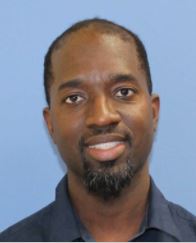
Damani Taylor, MD
Hospice Physician
Pediatrics
Hospice and Palliative Medicine
Other Faculty
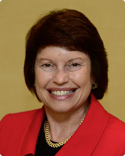
Myra Glajchen, DSW (Associate Program Director)
Director of Education and Social Work
Project Director, Educating Social Workers in Palliative and End-of-Life Care (ESPEC)
Assistant Professor, Department of Family and Social Medicine, Albert Einstein College of Medicine
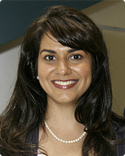
Lara Dhingra, PhD
Director of Health Disparities and Outcomes Research
Health Psychology
Associate Professor, Department of Family and Social Medicine, Albert Einstein College of Medicine
Recent MJHS Fellows
Stephen McCormick, MD
2019-2020
Northwell Health Care System, New York
Deepali Pandey, MBBS
2019-2020
University of Kentucky
Eric Cho, MD
2019-2020
T.J Regional Health, Maryland
Calvin Krom, DO
2018-2019
Vero Beach, Florida
Andrew Valdez, DO
2018-2019
Asante Health, California
Jonathan Roselman, MD
2018-2019
Rush University Medical Center, Chicago, Illinois
Christopher Flynn, DO
2017-2018
Swedish Medical Center, Seattle, Washington
Elyceia Dortch, MD
2017-2018
Kaiser Permanente, Atlanta, Georgia
Pouyan Namakydoust, MD
2020-2021
Montefiore Medical Center, Bronx, NY
Tina Wexler, MD
2020-2021
Montefiore Medical Center, Bronx, NY
Swathi Gadangi, MD
2020-2021
MJHS Hospice and Palliative Care, New York, NY
Jafri Hera, DO
2021-2022
IU Health West Hospital, Avon, IN
Michelle Newman, MD
2021-2022
MJHS Hospice and Palliative Care, Brooklyn, NY
Nitish Nandu, MD
2021-2022
University Hospital, Columbia, MO
Ariel Daube, MD
2022-2023
VNS Hospice, New York, NY
Luke Donnelly, MD
2022-2023
Northwell Health, Westchester, NY
Angels Nguyen, DO
2022-2023
Kaiser Permanente, Oakland, CA
Sangmin Chang, MD
2022-2023
Complex Care Clinic, Palo Alto, CA
Jessica Tu, MD
2023-2024
New York Presbyterian, New York, NY
Nathallie Pokasuwan, MD
2023-2024
New York Presbyterian, New York, NY
Bahiazoe Wahba, MD
2023-2024
New York Presbyterian, Brooklyn, NY
The MJHS Institute is grateful to the Y.C. Ho/Helen and Michael Chiang Foundation, The Hearst Foundations, and The Milbank Foundation for their generous support of our Interprofessional Hospice and Palliative Care Fellowship Program.
